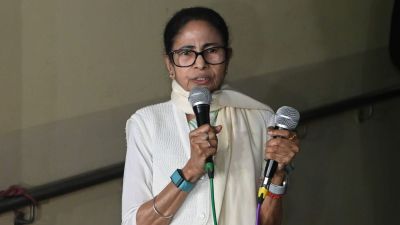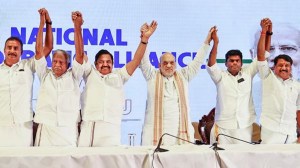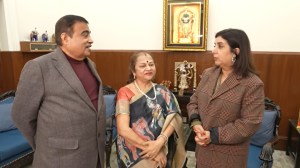India doesn146;t want outsourcing row to hit the roof
As India and the US get into election gear, a simmering spat on the outsourcing of jobs to India from the US will not be allowed to hit the ...

As India and the US get into election gear, a simmering spat on the outsourcing of jobs to India from the US will not be allowed to hit the roof during US Secretary of State Colin Powell8217;s visit to India.
Under the circumstances, External Affairs Minister Yashwant Sinha, Finance Minister Jaswant Singh and National Security Advisor Brajesh Mishra 8212; led by PM Vajpayee 8212; could discuss with Powell the possibility of the US postponing polls in Afghanistan, which is Powell8217;s next stop, or perhaps the new spirit of brotherhood between India and Pakistan.
New Delhi has decided that the 8216;8216;bilateral relationship8217;8217; will be the focus of the visit, even if it8217;s an 8216;8216;afterthought8217;8217; to the nuclear scandal in Pakistan and its linkage with the search for Osama bin Laden.
If and when Powell raises the outsourcing issue, as he did at the India Today conclave 8216;8216;the American people will find it less difficult to accept outsourcing if India helps generate more American jobs by supporting trade liberalization in the WTO and further opening its markets to US exports8217;8217;, the Indian leadership is likely to show its displeasure by delivering a set of homilies about free trade and market forces.
One firm message is likely to be put out: any quid pro quo on outsourcing, any trade-off in any other area, will be unacceptable to India.
Sources said that though the government was irritated with US double standards on free trade, New Delhi will refrain from any counter-threats. Meanwhile, the irritation quotient in New Delhi has zoomed. US trade representative Robert Zoellick8217;s remarks on outsourcing last week, took New Delhi8217;s breath away.
8216;8216;The Indians,8217;8217; Zoellick said, 8216;8216;have absolutely no right to complain because they don8217;t belong to the government procurement code in the WTO which sets obligations for making procurement deals transparent.8217;8217; Disinvestment Minister Arun Shourie responded, 8216;8216;Our imports have grown by 25 per cent8230;is this not openness?8217;8217;
Interestingly, it was newly arrived US ambassador to India David Mulford, who caused quite a stir with his comments. Despite his private assurances to Indian leaders on outsourcing, he publicly described India as one of the most 8216;8216;closed economies8217;8217;.
Clearly, five years after the Pokharan tests, issues like nuclear non-proliferation and missile defence have given way to threats from market securities.
- 01
- 02
- 03
- 04
- 05































